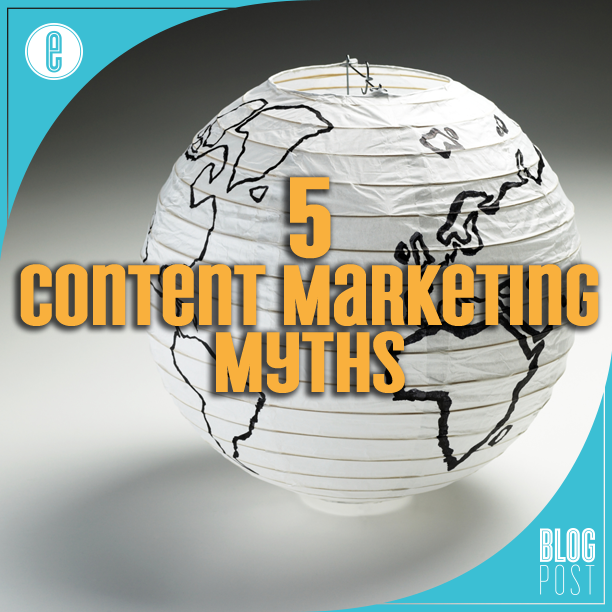
With social media firmly entrenched in the fabric of society, content marketing continues its growth as a major component of overall marketing strategies. It’s become the subject of global conferences with the participation of such major players as Microsoft, Cisco and Kraft Foods. The topic has even gained some Hollywood glitz as stars like Kevin Spacey appear as keynote speakers while the births of Facebook and Twitter become fodder for major motion pictures.
Companies are seeking ways to maximize leverage from their blogs, websites, and Facebook pages. There are dedicated associate positions and even entire departments handling management of online content. However, many marketers approach content marketing based on traditional marketing methods combined with their own personal experiences with the Internet.
Dispelling erroneous concepts about content marketing can help users realize its full potential. Here are five myths that should no longer be part of anyone’s mindset regarding this practice.
Content Marketing Myth #1
“Creating original content is key.”
Even associates concentrating full-time on content management have difficulty producing a steady, high-quality stream of material. Curated content is a way to increase engagement by offering carefully chosen content from a variety of contributors. According to Content Marketing Institute, curated content allows a company to provide timely information on current topics, leading readers to see them as a source to enhance their online experience.
Content Marketing Myth #2
“Social media is exclusively a tool for obtaining new customers.”
Consumers are going to “follow” brands they already know and like. A study by ad agency DDB showed that 84% of a typical brand’s Facebook fans are current or former customers. These platforms are prime opportunities to strengthen loyalty of an existing customer base, something that’s often neglected in favor of developing new ones. Special offers and members-only privileges are just two ways to appeal to online followers.
Content Marketing Myth #3
“Return on investment (ROI) can’t be measured for content marketing.”
This may have been true in the early days, but as content marketing has become widespread, more sophisticated means of tracking ROI have been developed. Social Media Examiner names four of the top analytics tools that provide detailed data reports at a minimum cost, while these four guidelines can provide a general framework for evaluating returns.
Content Marketing Myth #4
“Content that goes viral is the most effective.”
Marketing pieces that go viral can be compared to shooting stars. They produce a quick burst of light and just as quickly flame out. (Ask anyone who has been on the front page of Reddit!) Whatever gimmick drove the piece is more likely to be remembered than the corresponding brand. The best results come from consistently providing thoughtful, useable, and shareable content.
Content Marketing Myth #5
“Traditional marketing should be replaced by content marketing.”
It’s rarely a good idea in any situation to place all your eggs in one basket. Digital marketing strategist Bill Blaney compares it to throwing out the baby with the bathwater in his discussion on why the two methods should be used in a complementary manner for best results.
All new ideas and business practices come with a learning curve. Eliminating these myths will help marketers move forward with more efficient integration of content marketing into their plans.
-FINAL(01-00)-White&Blue-01.svg)




